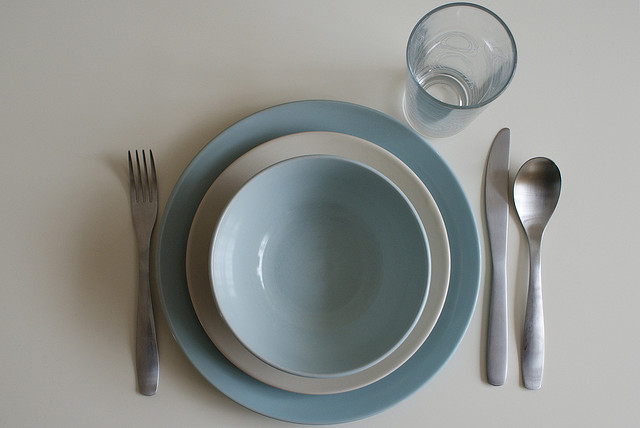Three months ago, I was introduced to the life-changing practice of Insight Meditation, or “the practice.”
I attended a 10-day Vipassana retreat. One of the highlights of the schedule was no meal after 5:30 p.m.
This meant no dinner.
The primary non-negotiable rules were noble silence, zero contact with the outside world, no access to any gadgets or any form of entertainment, no intoxicants of any form, strict attendance to extensive sessions of meditation and no evening meal. All of this, with one singular objective: To “center the mind.”
I was out of my comfort zone, and the most daunting rule of all was the no-dinner precept.
Research* has found health benefits to a no-dinner diet, including longevity. Ayurvedically, the body’s optimal digestive power is between 10 a.m. and two p.m. Our bodies work more efficiently during the day and start to slow down as the day ends, getting ready for rest and sleep. When the digestive system is not overworked, the body is healthy and the mind is clear, contributing to the balance of mind and body.
In many ancient cultures, within the Jewish tradition and among Buddhist monks, the practice of “no-eating-anything” after two p.m. exists for a variety of reasons, including the above.
As time passed at the retreat, I was settling into the no-dinner precept; at least, I felt assured that I would not hit the floor in a dead faint out of starvation! Furthermore, I noticed first-hand the benefits of the practice: increased awareness, openness to the “present moment” and a unique sense of connection with myself. I committed to the practice and I was curious to experiment with the no-dinner precept beyond the retreat.
After those 10 days, I came back into contact with the outside world determined to maintain the centeredness of my mind that I had achieved at the retreat.
The rules and precepts were now voluntary. I continued waking up at 4:30 a.m., meditating twice a day and sticking to two meals a day. During the first 15 to 20 days, despite having substantial, nutritious meals for breakfast and lunch, I felt a strong urge to eat during dinner hours. This was contrary to the evenings at the retreat.
I wanted to understand why. Over time, I discovered that my hunger was mostly “habit hunger” (based on mental conditioning) or “binge-eating” (based on feelings) instead of real hunger. In other words, it was stimulated more by the mind than by the body. Though I admit, there definitely were moments of “real hunger.”
Research** has shown that we sometimes reach out to food due to plain habit (to cope with boredom, because the food is there, because other people are eating, because it’s a special occasion) or out of emotions and feelings (to soothe our frustrations, anxiety, pain). When we study behaviors associated with bulimia, anorexia, obesity or any kind of addiction, what we discover are underlying psychological issues, such as fear, low self-esteem, anger and a need for connection—the solution to which is not food, but an understanding of our state of mind.
Why was this intense urge nonexistent during the retreat? Probably because the mind was more centered due to intensive meditation and limited distractions, effectively more alert and attentive to what was going on within the body.
The intention is not to beat up the mind. It is to attempt to understand it better and use it as a resource. The mind has tremendous potential, and all the choices we make, including when and what we eat, are a function of our mental landscape. Furthermore, life is not a retreat and most of us are not intensively meditating monastics. We are laypeople with time-bound goals to achieve.
The bottom line, though, is the universal quest for a life of meaning and purpose. The pursuit of the mind is key.
I continue with the no-dinner experiment, which may end as time passes or turn into a lifestyle.
Regardless, in my journey from excess to fasting I have learned to be in control of my mind, effectively making way for a sense of balance and joy in my life. Apart from discerning between “craving” and “actual hunger,” I have also become more conscious of the quality of food in terms of nutritional value and portion size, developing a deeper appreciation for my body.
I feel a great sense of empowerment, balance and joy.
This has encouraged me to also look at other lifestyle choices I make—watching TV, surfing the internet, using my smartphone, people I spend time with and thoughts that I think. I notice myself constantly questioning, “Am I using this as a distraction or a “pacifier,” or is it adding any value?”
Such introspection is healthy; after all, the mind-body machinery is singular to determining the quality of our lives. It’s a life-long practice.
~
* “The No-Dinner Diet” by Paul Nison
** “10 Reasons You Eat When You’re Not Hungry And What Can You Do About It” by Erin Whitehead
~
Relephant:







Read 1 comment and reply